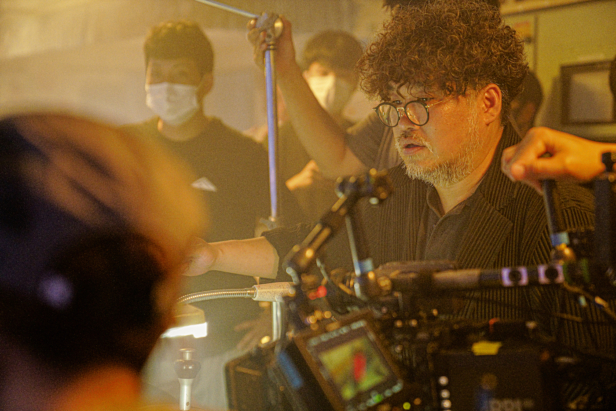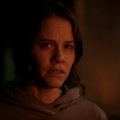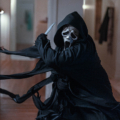Following its world debut at TIFF Midnight Madness in 2022, Project Wolf Hunting has gained an infamous reputation and become a global film festival favourite, having been selected for Sitges International Film Festival, Leeds International Film Festival and San Sebastian Horror & Fantasy Film Festival.
In the savage plot, set during an extradition from the Philippines to South Korea, a group of dangerous criminals unite to stage a coordinated escape attempt from their floating prison. As the jailbreak escalates into a bloody, all-out riot, the fugitives and their allies from the outside exact a brutal terror campaign against the special agents onboard the 58,000-ton cargo ship. But the prisoners aren’t the only ones waiting to rise from the darkness – the freighter may be harbouring an even more sinister enemy…
We also have an exclusive look at the film right here…
Kim Hong Sun (pictured above) tells us more…
How did the idea for Project Wolf Hunting first come to you?
I always like to start with something fresh. First, I heard some news back in 2017 about 47 prisoners who were being shipped to Korea. I thought about that and how getting to prison is usually the end of the story, but wouldn’t it be interesting if that was the start? So I developed that premise further, and yes I realise there are similarities to Con Air! [laughs]
I looked at other news to develop ideas and found an article covering a story from the Second World War, during the occupation period. The Japanese army went to Asian countries, such as China and the Philippines, and conducted human experiments on prisoners. I read that there were survivors from these experiments so I wondered, what if I made a story based on a survivor, and what might happen to that character?
It feels like while it’s an action and horror film, there is social commentary too, is this true?
My film Traffickers had a human trafficking story, The Chase showed old people living alone and Metamorphosis looked at the destruction of family. So yes, in my work there’s always some kind of social comment. In the case of Project Wolf Hunting, I wanted to look at human ethics and show how violence leads to more violence, a never-ending cycle. Then the history of the human experiments during the war is a lesser-known story, so I wanted to tell it in an accessible way.
How did you approach the casting? Seo In-Guk, in particular, was a big surprise to see in a villain role…
Generally, I prefer to work with actors who I feel have a lot more to show which we haven’t necessarily seen yet, so I like casting these types of actors who bring that energy. From the big stars right down to extras, I like to work with good personalities too.
As you mentioned, Seo In-Guk – who is a very famous singer in Korea – has never played a villain in any media, so I knew it would be fresh to cast him in this tough role. Again, I knew he had this energy, but it’s something we’ve never seen before, and people were surprised.
How long did the entire film take?
Usually, each film takes about two years. Project Wolf Hunting took me six months to write, six months of pre-production, six months of actual production and filming, then finally four months of post-production and editing.
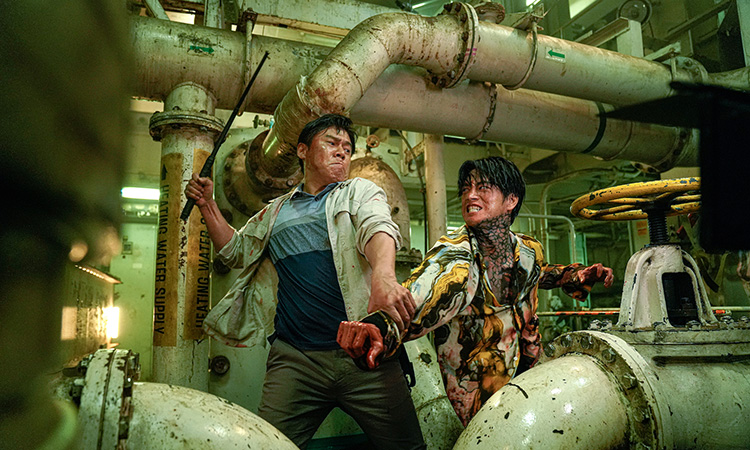
The film features so much action and violence, with lots of practical effects. How did you achieve this?
We went through pre-production and planned everything carefully. The action choreographer is someone I’ve worked with for 10 years and always puts the film and story first. Rather than using complicated martial arts, I wanted realistic, direct contact action, driven by each character’s intentions based on what they would do to kill another character in that situation. Then, we just planned a way to achieve everything safely.
In terms of the blood effects, it took a long time to plan and shoot certain scenes, but everything was scheduled. We knew we had a certain amount of takes and would need a break after saying “cut” to clean up afterwards. Then, we had a clean-up team on site, and in Korea, the cast and crew will help clean up as a team, so we can go again.
The film is very extreme in its use of blood and violence. Did you get any pushback to reduce it?
From the investors to distributors, I warned everyone it was going to be gory. Fortunately, I got the promise of total freedom to do whatever I wanted and no one ever interfered, so that’s good! I’m very thankful for that.
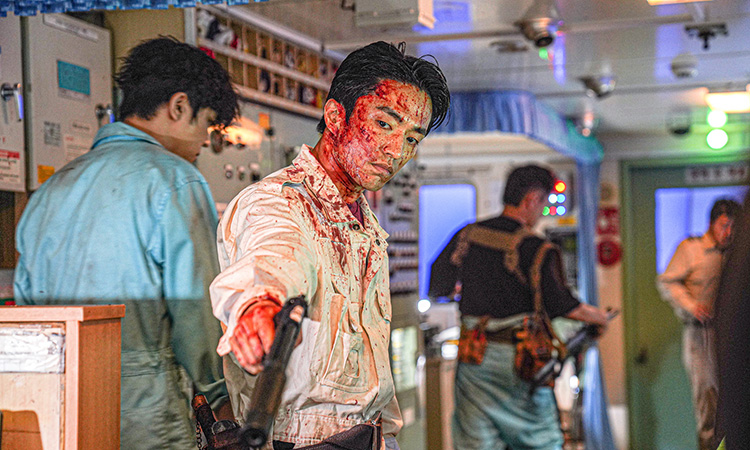
There are lots of crazy death scenes. Which is your favourite?
I can think of three off the top of my head. The first is when Jong-doo bites off someone’s ear and I wanted the special effects team to create a realistic feeling ear. This was so, when the actor chews on it, it would feel like real skin and I wanted to get that reaction. Another favourite is the scene where one character gets beaten to death with his own arm, and I’ve seen a lot of people talk about that one! And lastly during the big fight in the depths of the ship, I like the part when Alpha kills one of our main characters by crushing his head.
Do you have a favourite overall scene in the film?
I really like the final scene by the sea. At this point, all the actors were very relaxed, and I felt free because we’d nearly finished the film. So, I think I was in a relaxed mood which caried into the calmness of the scene. Everything leading up to that point is very hard, very violent, but here we get a moment of peace.
More and more western film fans are discovering South Korean cinema. What do you think audiences enjoy about these films?
Thank you for saying that. I think it’s largely thanks to great directors like Bong Joon-ho, Park Chan-wook and others who came before me, and even others who came before them, who have made Korean content popular – through films, TV and even games. In the case of my films – especially with so much blood and violence – they can be difficult to get funding for, but I think audiences enjoy this old-fashioned approach, with practical effects, paired with fresh concepts and ideas.
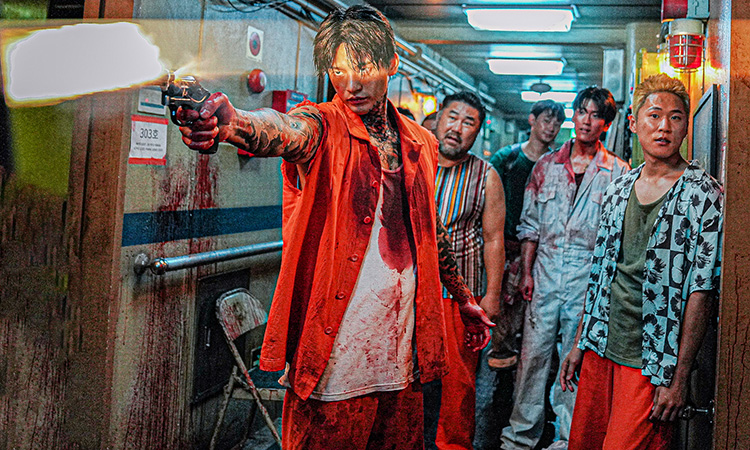
As a writer-director, you seem to mostly direct your own scripts. Would you ever direct someone else’s work?
I think most directors would love to wake up next to the perfect script. The writing process can be so difficult and I have to pour my entire soul into it. So, if someone handed me the perfect finished script, I’d love that. Until then, I write my own work too.
We read somewhere that you’d even like to work in comedy or romance one day. Is this true?
Before I started making my own films, about 20 years ago, I worked in Korean television for a long time. The genres I worked in were romantic comedy, melodrama and political drama. There was more of a hierarchy back then so I working as an assistant to the director. The main director I worked with was very famous, a master in these genres. I’d really like to make use of everything I learned, in terms of how to make an audience laugh and cry. My writing style tends to be tough, but in reality I cry easily and I love tear-jerker films, so it’s an ambition of mine to make a film like that.
You recently signed with American agency, William Morris Endeavour, which could mean big things in Hollywood. What’s next for you?
I’m in a very happy position in my career right now. I’m thinking about working on an English language action film next which is very exciting. I can’t say more for now, but please stay tuned.
Do you have any final message for UK audiences?
I’ve been to London once before, around the time I went to San Sebastian Horror & Fantasy Film Festival in Spain. I’d love to visit other English cities too. I befriended some English actors and directors and I was moved by how passionate and energetic they were, and we still keep in touch today. It’s my hope that UK audiences receive Project Wolf Hunting with this same level of passion and I really hope everyone enjoys it!
Project Wolf Hunting is out now in selected UK cinemas. Own it on Blu-ray, DVD & Digital 10th April. Read more exclusive interviews at SciFiNow here.
Find more exclusive clips and trailers at the SciFiNow YouTube channel.
